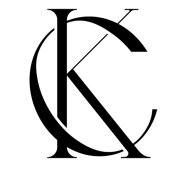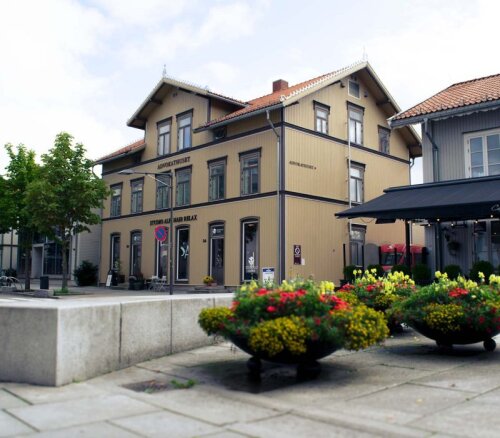Best Drug Crime Lawyers in Norway
Share your needs with us, get contacted by law firms.
Free. Takes 2 min.
Or refine your search by selecting a city:
List of the best lawyers in Norway
About Drug Crime Law in Norway
Drug crime in Norway is governed by several laws and regulations primarily focusing on controlling the production, possession, and distribution of drugs. The country takes a relatively stringent approach towards drug offenses, emphasizing prevention, fined penalties, and health-oriented intervention measures over heavy incarceration. The Penal Code and the Act on Medicinal Products are central to this effort. Enforcement is robust, and both individual possession for personal use and large-scale trafficking can result in severe legal consequences. Importantly, Norway emphasizes rehabilitation and harm reduction, aiming to integrate offenders back into society.
Why You May Need a Lawyer
Legal assistance in drug crime cases is crucial given the complexities of the legal system and the potential severe consequences involved. Whether you are accused of possession, distribution, or production of drugs, a lawyer can help navigate legal processes, ensure your rights are protected, and provide representation in court. Additionally, if your case involves cross-border elements, understanding both Norwegian and international drug laws is necessary. A lawyer with expertise in drug crimes can offer guidance, help negotiate plea deals, or seek alternative sentencing options that focus on rehabilitation.
Local Laws Overview
Several key aspects of Norwegian law are pertinent to understanding drug crimes:
- Possession and Use: While possession of small amounts for personal use may result in fines and mandated education or treatment programs, repeat offenses can lead to imprisonment.
- Trafficking and Distribution: These offenses are taken seriously, with significant penalties including long prison sentences, especially for involvement in organized crime.
- Intoxication and Influence: Operating vehicles or conducting professional duties under the influence of drugs is illegal and heavily penalized.
- Rehabilitation over Incarceration: The justice system offers programs that focus on assisting offenders in overcoming addiction and leading productive lives.
Frequently Asked Questions
What constitutes a "drug" under Norwegian law?
In Norway, a drug is defined as any substance or preparation that has the ability to influence the user's state of mind, and includes narcotics, psychotropic substances, and those listed in applicable drug legislation schedules.
Is drug use decriminalized in Norway?
No, drug use is not decriminalized. While possession of small amounts for personal use is typically met with fines and mandatory interventions rather than jail time, it remains illegal.
What are the penalties for minor possession offenses?
Penalties can include fines, and in some cases, a conditional sentence with a focus on treatment or educational programs. Repeat offenses may lead to more severe consequences, including imprisonment.
How does Norway address drug trafficking?
Drug trafficking is considered a serious crime with severe penalties, including long prison sentences. Cases often involve collaboration with international law enforcement when applicable.
Are there any legal consequences for being in proximity to drugs if I didn’t use them?
Being present in situations where drugs are found might raise legal concerns, particularly if there is suspicion of possession or distribution; however, mere proximity without evidence of involvement typically does not result in charges.
Can foreigners face deportation for drug offenses in Norway?
Yes, foreigners involved in serious drug crimes may face deportation depending on the nature and severity of the offense.
What role do rehabilitation services play in legal proceedings?
Rehabilitation services are integral, often encouraged by authorities as part of sentencing, aiming to help offenders recover and reintegrate into society, potentially mitigating harsher penalties.
Is it legal to use CBD products in Norway?
Products containing CBD are legal as long as they do not contain THC above approved limits. It’s important to ensure products are compliant with regulations.
What should I do if I’m arrested on drug charges?
Seek legal counsel immediately; do not resist arrest, use your right to remain silent, and request a lawyer to understand your rights and legal options.
How does Norway cooperate with international drug enforcement?
Norway actively collaborates with international bodies and law enforcement agencies to combat drug trafficking and other drug-related crimes effectively.
Additional Resources
For those seeking further assistance or information related to drug crime in Norway, consider reaching out to the following:
- The Norwegian Police Service: Provides information and support surrounding drug laws and enforcement.
- Legal Aid Clinics: Offer free or reduced-cost legal services for those who qualify.
- The Ministry of Health and Care Services: Oversees rehabilitation programs and provides resources for addiction treatment.
- Norwegian Centre for Addiction Research (SERAF): A research center providing insights and support for addiction-related issues.
Next Steps
If you require legal assistance regarding a drug crime in Norway, consider taking the following steps:
- Contact a lawyer specializing in criminal defense, particularly drug-related offenses, to discuss your case.
- Prepare all relevant documents and facts pertaining to your situation for a more efficient consultation.
- Explore local legal aid options if you have financial restrictions affecting access to legal services.
- Engage with rehabilitation or counseling services if your situation involves substance use issues, as this may positively impact legal outcomes.
- Stay informed about your rights and any updates to drug legislation relevant to your circumstances.
Lawzana helps you find the best lawyers and law firms in Norway through a curated and pre-screened list of qualified legal professionals. Our platform offers rankings and detailed profiles of attorneys and law firms, allowing you to compare based on practice areas, including Drug Crime, experience, and client feedback.
Each profile includes a description of the firm's areas of practice, client reviews, team members and partners, year of establishment, spoken languages, office locations, contact information, social media presence, and any published articles or resources. Most firms on our platform speak English and are experienced in both local and international legal matters.
Get a quote from top-rated law firms in Norway — quickly, securely, and without unnecessary hassle.
Disclaimer:
The information provided on this page is for general informational purposes only and does not constitute legal advice. While we strive to ensure the accuracy and relevance of the content, legal information may change over time, and interpretations of the law can vary. You should always consult with a qualified legal professional for advice specific to your situation.
We disclaim all liability for actions taken or not taken based on the content of this page. If you believe any information is incorrect or outdated, please contact us, and we will review and update it where appropriate.
Browse drug crime law firms by city in Norway
Refine your search by selecting a city.














